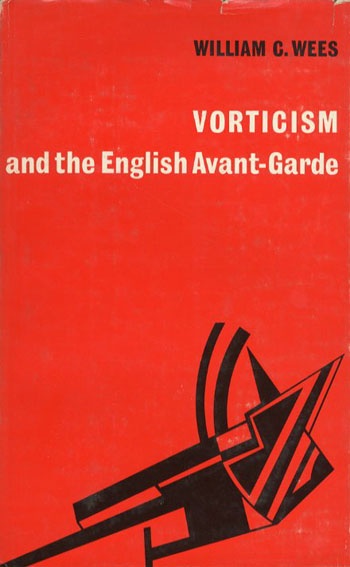Peter Bürger: Theory of the Avant-Garde (1974–) [DE, EN, ES, PT, CZ]
Filed under book | Tags: · 1920s, aesthetics, art, art criticism, art history, art system, art theory, avant-garde, collage, literary theory, literature, modernism

“In this volume, Peter Bürger formulates a theory of the ‘institution of art’. He argues that the social status of literature and art cannot be explained by making simple, direct links between the contents of individual works and social history. Rather, he holds, it is the social status of art, its function and prestige in society, that provides the connection between the individual art work and history. Bürger’s concept of the institution of art establishes a framework within which a work of art is both produced and received.
The French and German literary and visual avant-garde of the 1920s provides the test of Bürger’s theory. Focusing on the role of the artistic manifesto and, particularly, on the collage as an art form, he shows how avant-garde movements questioned the autonomous, self-referential status of art in bourgeois society and thus represented a radical break with the aestheticism of high modernism. Bürger attacks metaphysical aesthetics and argues instead for a materialistic aesthetic theory for today, one that is rooted in the reality of the social sphere. His theory calls into question any conventional concept of art derived from Romantic notions of organic unity.
Theory of the Avant-Garde provoked such discussion in Germany that its publisher, Suhrkamp Verlag, issued a book of responses that was more than twice the size of Bürger’s own book.” (from the back cover)
German edition
Publisher Suhrkamp, Frankfurt am Main, 1974
Second edition, 1993
147 pages
English edition
Translated by Michael Shaw
Foreword by Jochen Schulte-Sasse
Publisher University of Minnesota Press, 1984
Theory of History and Literature series, 4
ISBN 0816610673
134 pages
Reviews: Benjamin Buchloh (Art in America, 1984), Leah Ulansey (MLN, 1984), Daglind Sonolet (Telos, 1984), Michael T. Jones (German Quarterly, 1986), Martin Vrba (A2, 2016, CZ).
Publisher (DE)
Publisher (EN)
Publisher (CZ)
Theorie der Avantgarde (German, 2nd ed., 1974/1993, updated on 2020-10-13)
Theory of the Avant-Garde (English, 1984, assembled from various sources, no OCR, updated to full version on 2014-5-12 via Charles, updated to OCR version on 2016-1-23 via a2, 12 MB)
Teoría de la vanguardia (Spanish, trans. Jorge García, 1987), 3rd edition (2000, 51 MB)
Teoria da vanguarda (Portuguese, trans. Ernesto Sampaio, 1993)
Teorie avantgardy (Czech, trans. Václav Magid, 2015, added on 2020-4-5)
See also Bürger’s essay Avant-Garde and Neo-Avant-Garde: An Attempt to Answer Certain Critics of Theory of the Avant-Garde, 2010.
Comments (4)Martin Puchner: Poetry of the Revolution: Marx, Manifestos, and the Avant-Gardes (2005)
Filed under book | Tags: · aesthetics, art, art history, avant-garde, communism, dada, futurism, literature, marxism, politics, revolution, situationists, surrealism, theatre

“Poetry of the Revolution tells the story of political and artistic upheavals through the manifestos of the nineteenth and twentieth centuries. Ranging from the Communist Manifesto to the manifestos of the 1960s and beyond, it highlights the varied alliances and rivalries between socialism and repeated waves of avant-garde art. Martin Puchner argues that the manifesto–what Marx called the ‘poetry’ of the revolution–was the genre through which modern culture articulated its revolutionary ambitions and desires. When it intruded into the sphere of art, the manifesto created an art in its own image: shrill and aggressive, political and polemical. The result was “manifesto art”–combinations of manifesto and art that fundamentally transformed the artistic landscape of the twentieth century.
Central to modern politics and art, the manifesto also measures the geography of modernity. The translations, editions, and adaptations of such texts as the Communist Manifesto and the Futurist Manifesto registered and advanced the spread of revolutionary modernity and of avant-garde movements across Europe and to the Americas. The rapid diffusion of these manifestos was made “possible by networks–such as the successive socialist internationals and international avant-garde movements–that connected Santiago and Zurich, Moscow and New York, London and Mexico City. Poetry of the Revolution thus provides the point of departure for a truly global analysis of modernism and modernity.”
Publisher Princeton University Press, 2005
Translation/Transnation series
ISBN 1400844126, 9781400844128
336 pages
via delery
Reviews: Gregory Byala (Bryn Mawr Review of Comparative Literature), Randy Martin (The Drama Review), Matthew Rebhorn (Modern Drama), Laura A. Winkiel (Modernism/Modernity), Gavin Grindon (Papers of Surrealism).
PDF (16 MB, updated on 2017-6-18)
See also the entry on Marxist aesthetics on Monoskop wiki.
Comment (0)William C. Wees: Vorticism and the English Avant-Garde (1972)
Filed under book | Tags: · 1910s, art, art history, avant-garde, futurism, impressionism, literature, painting, sculpture, united kingdom, vorticism

An early study on the English avant-garde movement.
Publisher University of Toronto Press, and Manchester University Press, 1972
ISBN 0719005043
273 pages
Commentary (Wallace Martin, Contemporary Literature, 1974)
Review (George Waterston, Canadian Literature, 2013)
PDF (106 MB, no OCR)
See also Blast at Monoskop wiki

